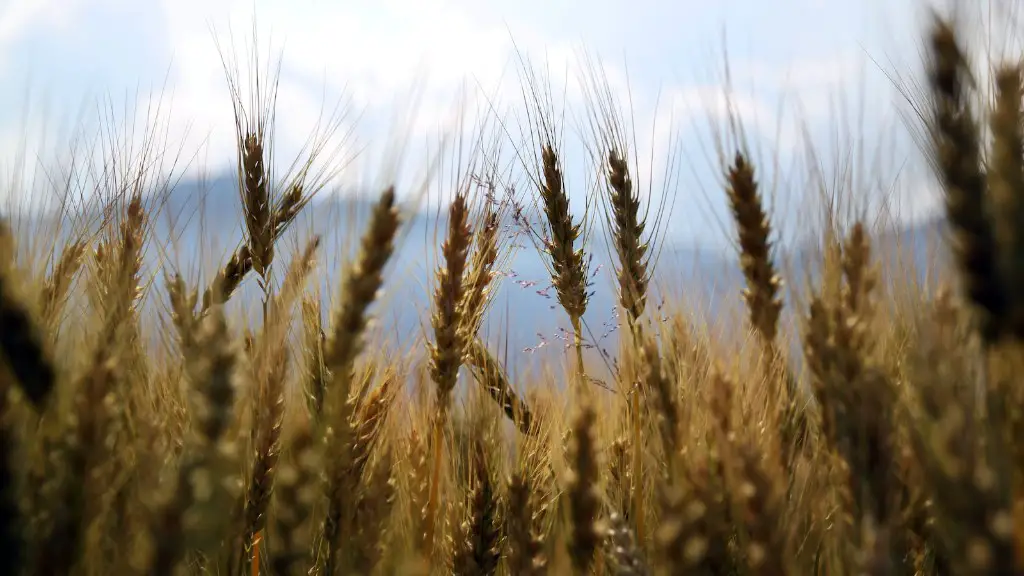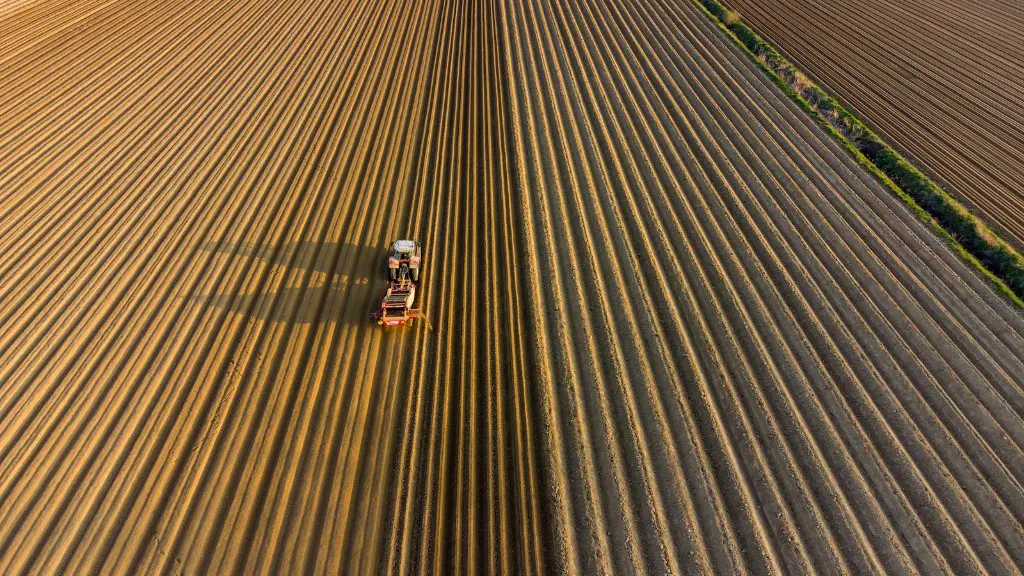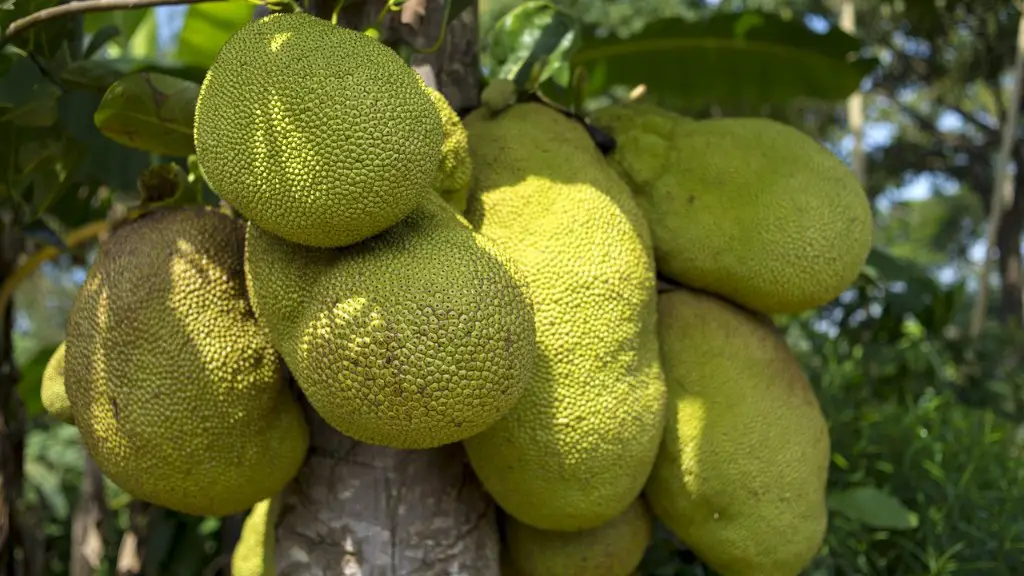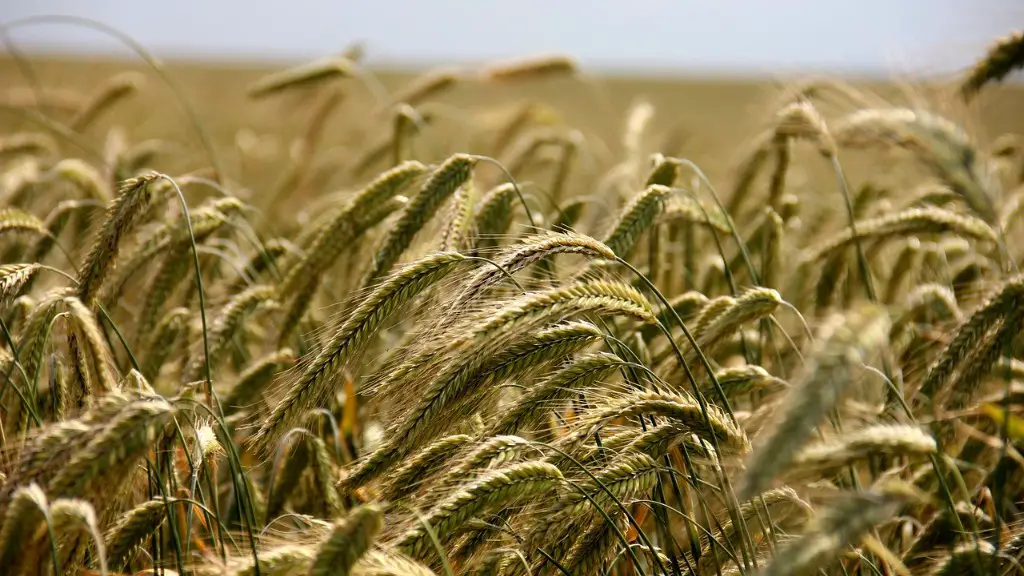Modern agriculture has many pros and cons. On the positive side, it has allowed for a massive increase in the world’s food supply, with today’s farmers able to produce far more food than in previous generations. This has been a boon for humanity, as it has helped to ensure that more people are able to lead healthy and prosperous lives. On the downside, however, some argue that agriculture has contributed to ecological problems like soil erosion and water pollution. Additionally, the widespread use of pesticides and other chemicals in agriculture has raised concerns about their impact on the environment and human health.
The pros of agriculture include the ability to produce food and other crops for human consumption and for sale. The cons of agriculture include the potential for crop failure due to drought or other weather conditions, as well as the backbreaking work required to plant and harvest crops.
What are the cons of agriculture?
Agriculture is the leading source of pollution in many countries. Pesticides, fertilizers and other toxic farm chemicals can poison fresh water, marine ecosystems, air and soil. They also can remain in the environment for generations.
Many countries have enacted laws and regulations to try to control agricultural pollution, but the problem persists. In some cases, agricultural pollution is the result of poor management practices. In other cases, it is the result of naturally occurring chemicals and processes.
Agricultural pollution is a serious problem that needs to be addressed. It is important to find ways to reduce the amount of pollution that is generated by agriculture.
Agriculture is a vital part of any society and has a far-reaching impact on people’s lives. It provides food and livelihoods for people, supports local economies, and provides raw materials for a wide range of industries. Agriculture also plays a role in environmental conservation and management.
What are at least 3 cons to our agricultural practices
Animal agriculture is one of the leading causes of environmental degradation. It is responsible for pollution, greenhouse gas emissions, biodiversity loss, and disease. It also consumes significant amounts of land, food, and water.
The advantages of sustainable agriculture are many, but it also has some downsides. For example, sustainable agriculture takes time for farmers to carry out their farm operations. However, the long-term benefits of sustainable agriculture outweigh the short-term costs.
What is the biggest problem in agriculture?
There are two large problems facing agriculture in the modern world. The loss of agricultural land through erosion and manmade factors is one of them. The other is the increasing lack of diversity in crops.
Loss of agricultural land is a huge problem because it means that there is less land available to grow crops. This can be a problem for farmers who want to expand their operations or for those who are trying to maintain their current level of production. In addition, erosion can lead to the loss of topsoil, which is essential for plant growth.
The lack of diversity in crops is also a problem because it means that there is a greater chance of crop failure. If a disease or pest affects one type of crop, it can have a devastating effect on the entire crop. This can lead to food shortages and higher prices.
There are two main problems with agriculture: the loss of agricultural land and the decrease in the varieties of crops and livestock produced. Agricultural land is being lost due to development and the conversion of farmland to other uses. This is a problem because it reduces the amount of land available for food production. The decrease in the varieties of crops and livestock produced is a problem because it leads to a loss of genetic diversity. This loss of diversity can make crops and livestock more susceptible to disease and pests, and it can also make it more difficult to adapt to changes in the environment.
What are 3 benefits of agriculture?
Agriculture is important for many reasons. It is the main source of raw materials for industry, it is important to international trade, it plays a big role in a nation’s revenue, it provides employment, it is crucial to a country’s development, it can help heal the environment, and it goes hand-in-hand with war.
Agriculture is vitally important to human life. We rely on agriculture to provide us with food, water, and other basic essentials. Agriculture also plays a key role in our economy and provides numerous other benefits.
What is agriculture and its benefits
Agriculture is the backbone of many economies, providing the food and fabrics that people need to live. It is a complex process that involves the cultivation of the land, growing crops, and raising livestock. Agricultural products must be carefully prepared for people to use and then distributed to markets. Agriculture is a vital part of the global economy and provides jobs for millions of people around the world.
Agriculture incubators are organizations that help to develop and support the growth of Agricultural businesses. They typically provide resources such as funding, mentorship, and infrastructure to Agricultural startups. However, they can also be a source of problems for startups, as they may not have the necessary experience or knowledge to help them grow successfully. In addition, incubators may not have the necessary resources to support all aspects of a startup’s growth, such as research and development, marketing, and sales. As a result, startups may find themselves hamstrung by their incubators, and may not be able to reach their full potential.
What are the 5 major consequences of agriculture?
Soil fertility loss is caused by the depletion of nutrients in the soil. This can be due to the overuse of fertilizers, the leaching of nutrients out of the soil, or the loss of organic matter.
Eutrophication of water bodies occurs when there is an increase in the amount of nutrients in the water. This can lead to the growth of algae and other aquatic plants, which can deplete the oxygen in the water and create a hostile environment for fish and other aquatic life.
Deforestation occurs when trees are cut down for various reasons, such as to clear land for agriculture or to harvest timber. This can lead to soil erosion, loss of wildlife habitat, and climate change.
Climate change is caused by the release of greenhouse gases, such as carbon dioxide, into the atmosphere. These gases trap heat and cause the Earth’s temperature to rise. This can lead to melting ice caps, rising sea levels, and extreme weather conditions.
Pesticide pollution occurs when pesticides are used in agriculture and end up in the environment. This can contaminate water supplies, harm wildlife, and cause health problems in people.
Farming contributes to climate change in a number of ways, one of which is through the release of methane from the production of livestock animals. When cows and other animals eat plants, their digestive tracts produce methane gas, which is then excreted as gaseous waste. This methane gas is a major greenhouse gas, and contributes significantly to the climate change problem.
What are the pros and cons of urban agriculture
Urban gardening is a great way to get fresh produce that supports a healthy lifestyle. Additionally, it promotes income production and small business expansion. Making fresh food more affordable is urban agriculture’s key benefit. However, contamination is one of the space-related problems that need to be considered when starting an urban garden. Maintenance costs are also something to keep in mind when planning an urban garden.
There are both pros and cons to agriculture. On the plus side, agriculture provides a lot of food and is less dangerous than hunting. On the downside, there can be conflicts over access to the food supply and weather can damage crops. Overall, agriculture has led to the development of civilization by allowing specialization and the domestication of wheat, corn, and rice.
What are 5 pros of organic farming?
Organic farming provides a number of benefits for both the environment and for farmers. It is a more sustainable form of agriculture, promoting development that is both environmentally and economically sound. Organic farming also results in healthier and tastier food, as well as being a more cost-effective process. In addition, organic farming provides a source of employment and generates income through exports.
The major problems faced by agriculture in India are:
-Unemployment
-Waterlogging in wetland areas
-Salinity in arid and semi-arid areas
-Acidity in high rainfall areas
-Pests (like weeds, diseases, and insects)
-Erratic rainfall distribution
In addition, the country’s agriculture highly depends on rain-fed.
Final Words
There are both pros and cons to agriculture. One of the pros is that agriculture provides food for people to eat. Without agriculture, people would not have any food to eat and would starve to death. Another pro of agriculture is that it provides jobs for people. Farming is a huge industry and employs a lot of people. A con of agriculture is that it can be harmful to the environment. For example, if farmers use too much pesticides and herbicides, it can pollute the air, water, and soil. Another con of agriculture is that it can be hard work. Farming is a physically demanding job that requires a lot of hours and can be very stressful.
The pros and cons of agriculture are that it can be a very labor intensive and expensive industry, but it is also a very important one. It is the backbone of many countries and provides a lot of food for the world.





